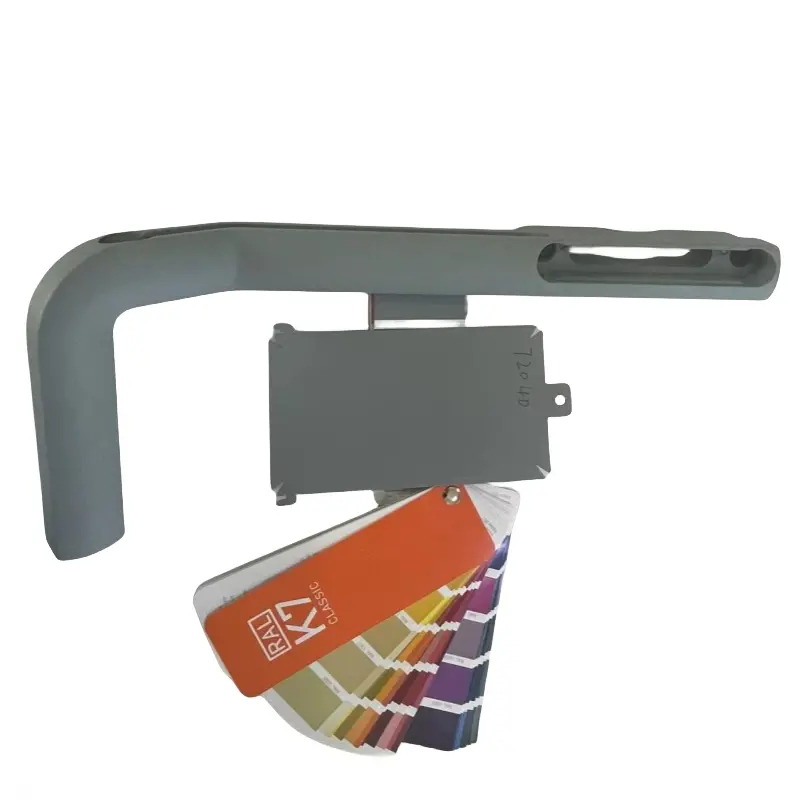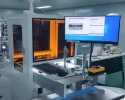2024-02-28
What is CNC precision machining?
CNC precision machining refers to the process of cutting and shaping raw materials to create parts with tight tolerances and complex geometric shapes. CNC precision machining processing is usually divided into rough machining, semi-finish machining, and finish machining.
CNC precision machining parts can be made from a variety of materials:
1. Aluminum
Aluminum is the most widely used material for CNC precision machining. Aluminum can be machined faster than other materials, making it a more useful material for CNC machining. Because it is lightweight, non-magnetic, corrosion-resistant, and cheap, aluminum is widely used in the production of aircraft components, car parts, bicycle frames, and food containers.
2. Stainless steel
Stainless steel is favored for its strength and corrosion resistance and can be used in everything from surgical equipment to electronic hardware.
3. Carbon steel
Carbon steel is also one of the popular materials for CNC precision machining. It is durable, safe, affordable, and environmentally friendly.
4. Brass
Brass is one of the simplest and most cost-effective materials for CNC precision machining to manufacture complex parts. Brass is easily machined, smooth, and with a clean surface, it is used to make medical devices, consumer products, electronic hardware and contacts, accessories, commercial products, and more.
5. Titanium
Titanium is heat and corrosion-resistant, it is a viable option for many industrial applications. Titanium is not affected by salt and water and is widely used in the manufacture of medical implants, aircraft components, and jewelry.
6. Magnesium
Magnesium is the lightest structural metal used by CNC precision machining manufacturers. Magnesium’s excellent machinability, strength, and robustness make it ideally suited for many industry applications.
What are the things that should be noted during the CNC precision machining?
- When the height of the workpiece is too high, different knives should be used for roughening, and then use a small knife to remove the remaining material.
- The materials with high hardness should be processed by reverse milling; materials with low hardness should be processed by down milling.
- When the workpiece is on the workbench, the impact of the knives’ size and stiffness on the quality of the manufactured parts should be considered.
- The clamping of mechanical parts processing must select the rationally fixed datum and clamping method. When we choose to set benchmarks, we will follow the two basic principles of "unity of benchmarks" and "coincidence of benchmarks."
- The tooling fixtures used in mechanical processing should be assembled from universal parts that can be adjusted as much as possible, which can effectively reduce the production preparation time.
The applications of CNC precision machining:
- Aerospace industry: The components for aerospace require high precision and repeatability, such as turbine blades in engines, tooling used to make other components, and even combustion chambers used in rocket engines.
- Auto industry: The automotive industry requires high-precision parts such as engine mounts or high-tolerance components such as pistons.
- Military industry: The military industry uses high-precision components with strict tolerance requirements, such as missile components, gun barrels, etc. CNC precision machining can provide high-quality machined components in the military industry.
- Medical industry: Medical implantable devices are often designed to fit the shape of human organs and must be manufactured from advanced alloys. A lot of medical components are machined by CNC machines.
- Energy industry: The energy industry includes all areas of engineering, from steam turbines to cutting-edge technologies such as nuclear fusion. Steam turbines require high-precision turbine blades. CNC precision machining can meet the high requirements for the components of the energy industry.
CNC machining follows the improvement of market requirements developed for many years, and various processing techniques have been derived. You should consider many aspects( the surface shape of the workpiece, dimensional accuracy, position accuracy, surface roughness, etc)
when choosing a machining process. Only by choosing the most appropriate process can we ensure the quality and processing efficiency of the workpiece with the lowest cost. If you have any difficulty with CNC precision machining, welcome to send the email to DMTC!












